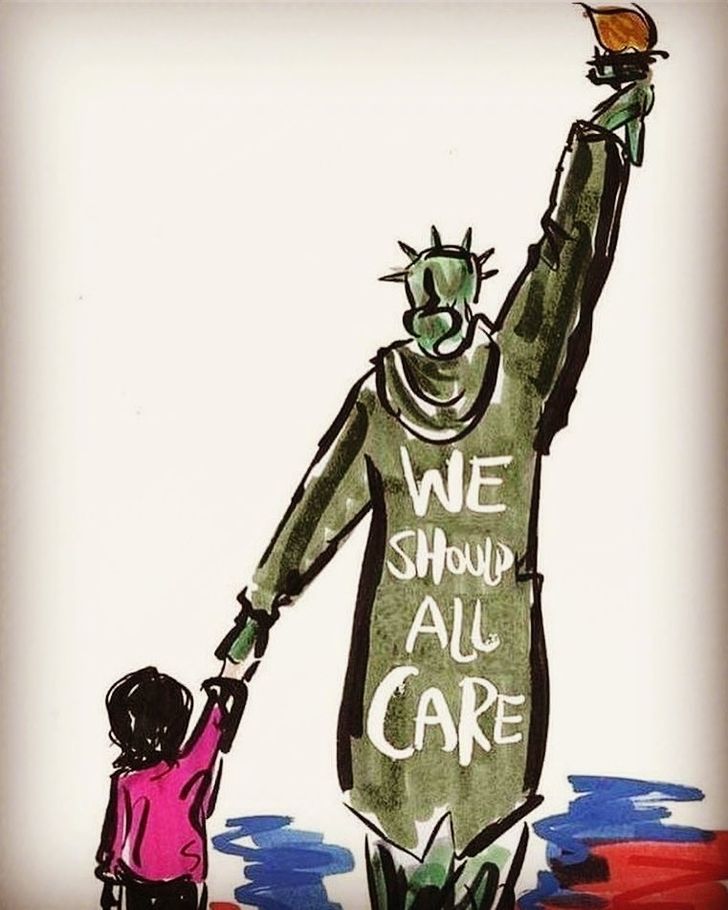At the tender age of nine, Ellie spent most of her summer going through the immigration process with her family while her friends enjoyed playing outside every day. She watched her parents fill out an endless amount of paperwork. She had to be medically cleared. She sat with there parents in a small space divided into two with a window; a man sat on the other side and interviewed them about their reason for migrating to the United States. Soon enough, her family received an approval. Her father left first to get settled and make the transition for the rest of them easier. Before she knew it, she was hopping on a plane with her mother and her brother to reunite with her father.
Ellie had no idea then, but she is one of the fortunate ones whose families have the means to legally enter the United States. Unlike her, immigrant children today are experiencing far more difficult situations as they are separated from their families due to the Trump administration's zero-tolerance policy.
The policy was introduced to prosecute any person illegally entering the country. Under the policy, immigrant families are divided because the parents are prosecuted for illegal entry while the children are placed in a shelter if not released to a relative or foster home. As the family separations continue to raise concerns, these young individuals are now facing deportation by themselves.
The Texas Tribune reported, "[More than] 2,000 children will likely need to deal with court proceedings . . ."
A child as young as three years old appeared in court without a parent. Immigrant Defenders Law Center in Los Angeles represented the toddler, who "started climbing up on the table." The scene, according to the executive director of the Center, "really highlighted the absurdity of what we're doing to these kids."
In other cases, unaccompanied minors represent themselves unless they are able to find a lawyer on their own. A public defender is not given in immigration court due to federal law but, also, because it is not considered a crime to be removable from the United States.
Without a representative or parent, children are defenseless.
Immigrant parents know the reason they are fleeing their home, but they cannot be there to help their sons and daughters explain themselves in court because of the zero-tolerance policy. Therefore, these children are not able to defend themselves nor do they understand what is happening to them.
"UNACCOMPANIED: Alone in America" re-enacts the removal proceedings that the immigrant children go through alone. The film states, "When children appear in immigration court alone, 9 out of 10 are ordered deported." A minor without a lawyer "is over four times more likely to receive a removal order . . ." However, not even half of them are granted to stay in the United States when they do have legal representation.
These deportations are happening throughout the country. Thousands of alone and vulnerable children sit in court waiting for their fate to be determined. Immigrant parents risk everything to bring their young ones to this country for safety, but are they actually safe here?

















